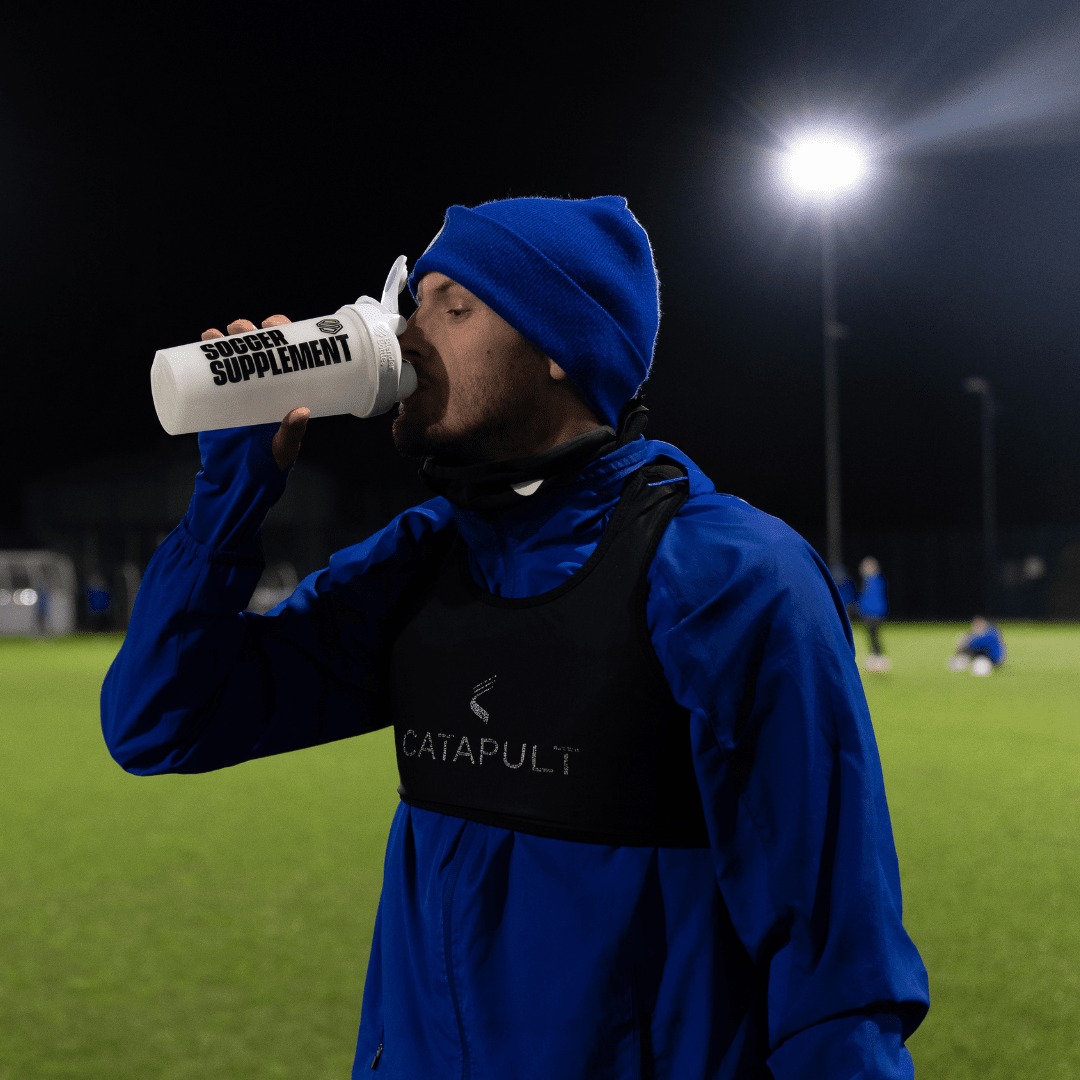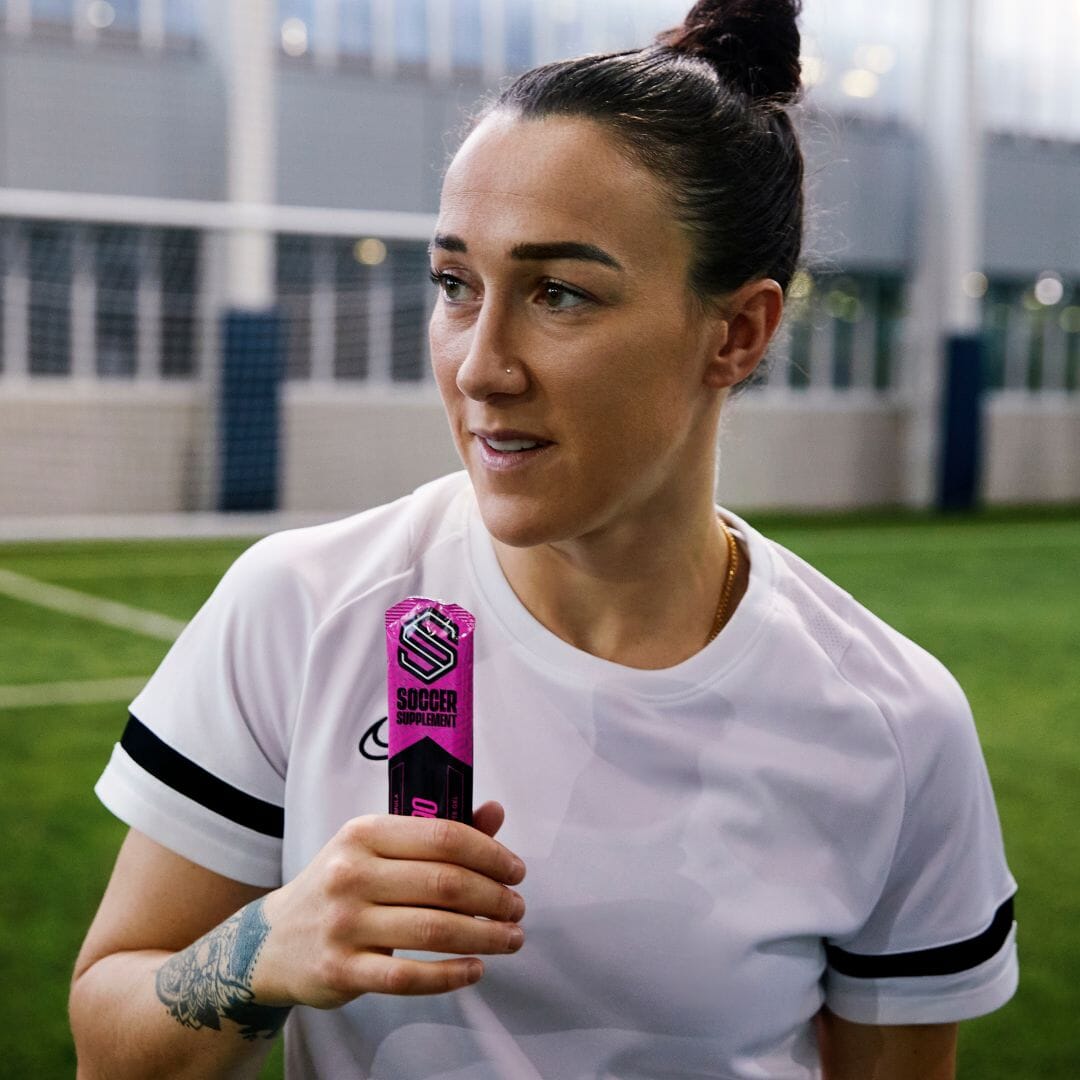You don’t need us to tell you that football is a demanding sport. Whatever your level and whatever your position, 90 minutes takes it out of you – both physically and mentally.
Today, professional football clubs commit a lot of time and money to nailing the right sports nutrition, with top nutritionists on hand to ensure their players are consuming the correct foods for fuel and recovery.
Interestingly, as with anything in the beautiful game, it wasn’t always like this. In fact, nutrition in football has changed dramatically over the years. Put on your sepia-tinted glasses, we are going back in time!
Having said that, we don’t have to travel too far back – just a few decades to the eighties and nineties, where nutrition in football was more about quantity than quality. Fill the player with enough food and you are bound to get the best from them… right?
With this thinking, pre-match meals were very much a stodgy affair, with steak and chips, egg and chips, pie and mash, and roast dinners often on the menu, while many players would scoff down a full English the morning before a match.
In some situations, even alcohol featured in pre-match preparations; something that is inconceivable in the social media age.
We look towards the legendary Brian Clough for one example. Clough was a big advocate of pre-match drinking and once issued his Nottingham Forest squad cans of beer to drink on the team bus just before the club’s European Cup match against Liverpool in 1979. That same year, the maverick manager also insisted his players drank everything from lager to champagne the night before Forest’s League Cup final against Southampton.
As the decades passed, more attention was given to the weight, health and fitness of players. Clubs, managers and players woke up to the fact that being fit and healthy may actually be a decent idea when playing professional football! In the 21st century, nutrition for footballers is based on science instead of simply giving the players what they fancy.
For example, when David Moyes took over at Manchester United in 2013, he quickly removed chips from the canteen menu, citing overweight players as the reason. A sensible decision some may say –apart from the potato-hungry United stars perhaps.
Yet the days of the whole team eating the same meals together in the canteen are also over. These days, teams hire performance chefs to specifically tailor meals towards the requirements of each individual player.
Of course, feeding the player with enough energy for them to last the full 90 is paramount, but it is done in a way that tends to bypass bacon, chips or black pudding.
There is no one-size-fits-all meal before a match, but players will often eat a dish with a focus on quality carbohydrates – baked potato, sweet potato, pasta (al-dente), rice, oats – and a small amount of protein, around two to three hours before the match.
Caffeine is also on the menu; usually coming from coffee, tea or a caffeinated sport drink. Meanwhile, quick energy-boosting snacks are on hand soon before matches – such as bananas or energy gels. For example, several Premier League clubs use our Focus90® energy gels, which combine caffeine, citrulline malate and beta alanine to boost concentration levels and delay muscle fatigue in footballers of any level.
After the match, attention turns towards consuming quality protein to repair the body and aid recovery. While once typically associated with bodybuilding and weightlifting, protein shakes are now a staple of the pro footballer’s matchday nutrition.
Hydration underpins all of this. Forget lager, whisky and champagne (sorry Cloughie!) – professional footballers are constantly drinking water, often with added electrolytes to boost hydration.
Of course, if you aren’t a professional player, you probably don’t have a team of nutritionists and a personal chef at hand (and if you do, you must be the top scorer in your league!). For most players, it is up to you to take care of your own nutrition.
Luckily, doing so isn’t too tough. There are countless articles on this site highlighting different aspects of nutrition for footballers, while our Match Day Nutrition Guide offers everything you need to know.
In short, you should aim to follow what the professionals do:
- Focus on eating quality carbohydrates and a little protein around two to three hours before the match, while you can top up your energy levels with a banana or an energy gel such as our Fuel90 just before you take to the pitch.
- After you leave the field, drink a protein shake as soon as you can to help begin the recovery process. Our Whey90 and Vegan Protein supplements both provide everything you need to repair and rebuild your muscles.
- Keep hydrated, both throughout the week and during matches. Keep a tube of our Hydrate90 effervescent electrolyte tablets nearby to boost the hydration power of your water.






